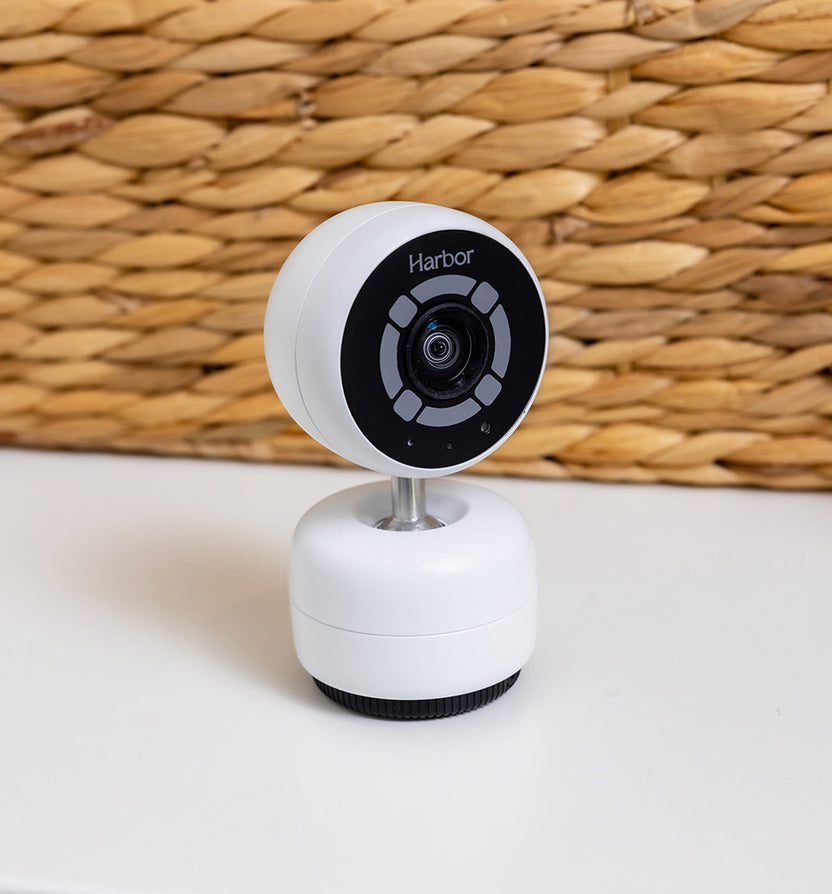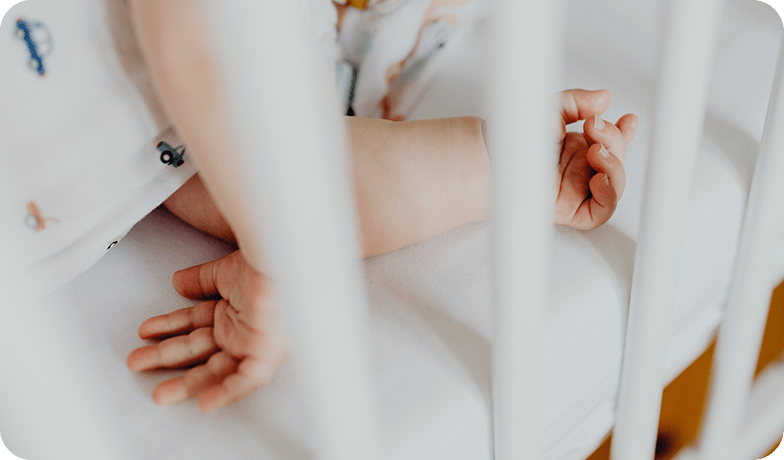
Written by: Kelly Brown, RN, Director of Nursing at Harbor
If you’ve ever stared at your baby’s onesie—damp with milk—and thought, “Is this normal?”, you're not alone. Spit-up and burping questions are among the most frequently asked by parents reaching out to Harbor’s care team. It’s even more confusing with endless feeding “hacks” online. Let’s cut through the noise with expert-backed guidance you can trust.
How Common Is Spit-Up?
Spit-up, especially physiologic acid reflux (GER), is extremely common. According to the American Academy of Pediatrics (AAP), over 50% of healthy infants spit up daily. It typically peaks around 4 months and often resolves by 12 months as the digestive system matures.
The NIH Safe to Sleep® campaign explains that immature lower esophageal sphincter function, a liquid diet, and reclining positions contribute to spit-up. Another detailed source by Mayo Clinic reaffirms that while the process can look dramatic, in most cases it is harmless and part of healthy infant development.
When Spit-Up Isn’t Normal
Watch for these concerning symptoms, which warrant a pediatric evaluation:
-
Projectile (forceful) vomiting
-
Poor weight gain or loss
-
Blood, green, or yellow fluid in spit-up
-
Back-arching or significant discomfort during or after feeding
-
Chronic coughing or breathing issues
If any of these signs appear, please contact your pediatrician right away.
Tips to Reduce Spit-Up
You may not prevent spit-up entirely, but you can reduce its frequency and help your baby feel more comfortable:
-
Feed smaller, more frequent meals
-
Keep your baby upright for 15–30 minutes after eating
-
Burp during and after feeds
-
Monitor latch quality or bottle nipple flow—Harbor’s guide on the best baby bottles for every feeding journey helps next steps
-
Use midline, aligned feeding positions to aid digestion
For guidance on recognizing what kind of feeding cue to respond to, check out Harbor’s expert post on early, active, and late feeding cues.
| Nipple Flow | Signs | What to Do |
|---|---|---|
| Too Fast | Baby coughs, chokes, gulps milk quickly; spits up; swallows air | Switch to a slower flow nipple; watch feeding pace closely |
| Too Slow | Baby fusses, pulls away, seems frustrated or hungry; feeds take too long | Try a slightly faster flow nipple; ensure baby is calm and alert |
| General Tip | Start with slow flow for newborns; adjust as baby grows | Follow baby’s cues; consult pediatrician or lactation expert if unsure |
Struggling to Burp? It Happens
Not every baby burps after every feeding, and often it's fine. Use gentle, proven techniques like:
-
Over-the-shoulder patting
-
Seated upright on your lap with gentle back rubs
-
Prisoner hold or the classic football hold
-
Avoid bouncing or strenuous movement right after eating
If your baby remains content, isn’t overly bloated, and isn’t spitting up more than usual, they may not need a burp every time. Harbor’s weaning guide also includes support for feeding transitions: from breast to bottle.
When to Be Concerned About Gas or Burping
That said, if your baby consistently struggles with gas, seems uncomfortable after feeds, or arches their back and cries, it could be a sign of:
-
Feeding intolerance (sometimes due to formula or dairy sensitivity)
-
Swallowing too much air (from a fast-flow bottle or shallow latch)
-
Structural concerns (such as tongue-tie or GERD)
In these cases, it's best to check in with your pediatric provider. You don’t have to figure this out alone—and there’s no badge for pushing through feeding stress without support.
Safe Products That Actually Help
You don’t need every trending gadget. Instead, choose safe, effective tools supported by expert guidance:
-
Slow-flow, anti-colic bottles help reduce air intake and reflux
-
Oversized, washable burp cloths for ease and cleaning
-
Upright carriers to aid digestion with gentle movement
-
Pacifiers (once feeding is established) can ease reflux—only if safe for your baby
Avoid inclined sleepers, wedges, or positioners—they increase the risk of suffocation. Always follow the CDC and NIH Safe to Sleep® recommendations for infant sleep safety.
Final Thoughts for Peace of Mind
If your baby spits up, it doesn’t mean you did anything wrong—this is a natural stage of development. Not every baby burps, and that’s just fine too. You’re a great parent, and you’re not alone. Most importantly, what your baby needs most is your presence, patience, and informed support.




